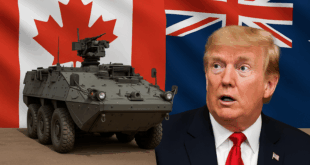geopolitical impact of North Korea’s nuclear crisis. This simply is not about one country’s nuclear pursuits; it is more about its impacts on other nations and the action they take to counter them.
This lead to repercussion, impacting international relations, security, and the global economy. So, let’s break it down.First, let’s set the stage and zoom into the far-east.
North Korea, a country officially known as the Democratic People’s Republic of Korea (DPRK), divided from South Korea along the 38th parallel by the US. It started its nuclear program in the 1980s, under its leader Kim Il Sung.
However, international sanctions, sanctions and diplomatic pressure have prompted the Democratic People’s Republic of Korea to expand its nuclear arsenal by conducting more nuclear tests and deploying intercontinental ballistic missiles, so-called ICBMs. This rang alarms to many nations, especially Japan and South Korea with its disturbing wounds from the World War 2.
1. East Asian national security
East Asia has been most directly affected by the North Korean nuclear war. Japan and South Korea are among the countries most affected by the fire. With the possibility of nuclear war, these countries are being forced to increase their defense capabilities. For instance, South Korea hosted thousands of American troops, participated in joint military drills, and deepened its alliance with the United States. In contrast, Japan has discussed revising its nonviolent code of conduct to take a more assertive military stance.China, North Korea’s biggest trading partner and closest ally, is in a challenging situation. Beijing, however, does not want instability brought on by its neighbor with nuclear weapons. However, he viewed North Korea as a refuge from American influence in the area. This balance has led to a tense relationship, with China occasionally punishing but also offering sufficient assistance to maintain the regime. Uncertainty along its borders would result from an unstable North Korea.
2. The Global Impact of USA
A major contributor to the resolution of the North Korean nuclear crisis has been the United States.
Over the years, Washington’s strategy has changed in everything from the polls to diplomatic discussions. For instance, the Trump administration took a historic step during the Singapore Summit in 2018 but non-proliferation negotiations ultimately failed without any long-term outcomes.
The Biden administration has been more calculated, putting politics first and using legal action to exert pressure.
Tensions between the US and China have also increased as a result of North Korea’s nuclear weapons development ambitions. North Korea’s actions frequently serve as a deterrent as the two superpowers vie for influence in the Indo-Pacific area. China views the crisis as a chance to weaken US influence in the area, while the US views it as a threat to international security.
3. International non-proliferation initiatives
One of the biggest obstacles to international efforts to denuclearize is the North Korean nuclear crisis. North Korea’s actions jeopardize the Nuclear Treaty’s goal of preventing the spread of nuclear weapons.
The US-led sanctions network seems to be working despite North Korea’s attempts to use international tensions—such as the strategic rivalrydh between the US and China, the conflict between Russia and Ukraine, and its growing ties with Russia—to undermine the international sanctions regime. Earlier negotiations with North Korea, such as suspending joint military exercises,f created unforeseen security challenges for South Korea.
4. Economic and social repercussions
The human cost of this crisis must not be overlooked. The North Korean government puts its nuclear program ahead of its citizens’ welfare.f Sanctions frequently have the opposite effect, making poverty and food insecurity worse.
The challenges of enforcing sanctions on proliferating states are not consistent, such in the cases against Iran, North Korea, India, and Pakistan.In the meantime, regional conflicts can impede trade and investment, which hurts the world economy.
What’s the bottom line, then?
North Korea’s nuclear crisis is a global issue rather than merely a regional one. Any sort of x negotiations with North Korea needs to be grounded upon mutual trust and strategic alliance. It affects the security of countries, regime dynamic, and even the lives of ordinary people.
As the stakes are high, political solutions become more elusive.
Countering the changing security dynamics and making sureg that North Korea does not acquire international legitimacy as a nuclear state require a coordinated strategy that includes economic measures, military readiness, and diplomatic pressure.
That concludes for today. Do you think politics can solve this problem, or are we doomed to a future rife with conflict? Peace out! ✌️
Dua sharosh
karachi
 Top Trends Blogs Trending Blogs – Latest News
Top Trends Blogs Trending Blogs – Latest News

